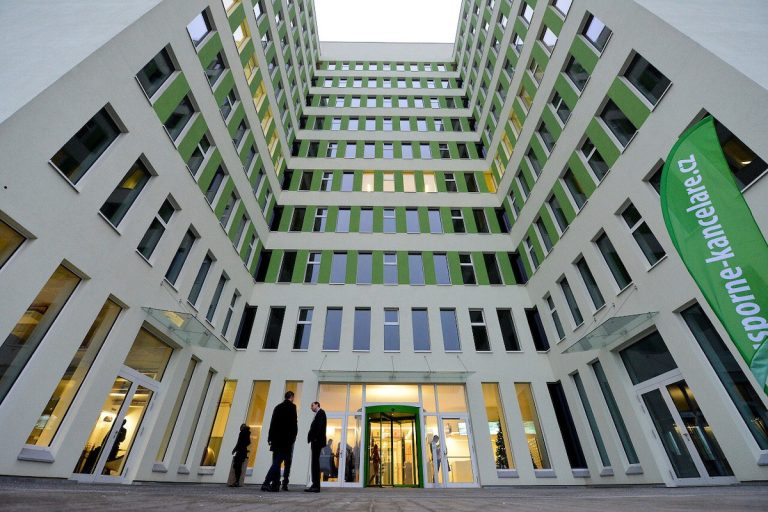Under the terms of the agreement, the Czech Republic will initially be a beneficiary of the solidarity financial contribution. Photo: Immigration office in Brno. Credit: Brno.cz.
Prague, June 10 (CTK) – The opposition ANO party has asked for an urgent lower house session on the reform of EU migration rules, which EU interior ministers agreed on Thursday evening, ANO leader Andrej Babis told journalists yesterday, describing the issue as “incomprehensible”.
Tomio Okamura, the leader of the far-right Freedom and Democracy (SPD), also announced his intention to call a lower house session, but unlike ANO, his group does not have enough members to do so.
“This is an incredible betrayal, an incredible failure of our government, which is servile to Brussels,” said Babis. He said that in his view, the Czech representatives in the EU do not defend the interests of the Czech Republic at all.
“The Czech Republic should decide for itself who will live there,” Babis said, adding that the reform of migration rules would be one of the major issues for ANO in the 2024 European elections.
At least 40 MPs must sign the motion to convene the urgent session, and the ANO movement has 71. Okamura announced the start of the signature collection today, but the SPD has only 20 members. Okamura will also try to push the topic to the regular lower house session, which continues on Tuesday afternoon. Based on the parliamentary rules, the extraordinary session must be called within 10 days after the motion is tabled.
Interior Minister Vit Rakusan (STAN) said he considered the agreement a success. “We have negotiated a fair joint solution, which we sought and actively promoted. No quotas, but solidarity-based financial assistance to the most burdened member states, which the Czech Republic has been implementing for a long time through the programs of the Interior Ministry,” Rakusan said in a press release yesterday.
In addition, on the basis of the negotiated agreement, the Czech Republic will be temporarily excluded from the compulsory solidarity system due to the large number of refugees fleeing from the war in Ukraine, Rakusan stressed.
“When the temporary protection regime for Ukrainian refugees ends, the Czech Republic will be a beneficiary of the solidarity financial contribution thanks to this agreement,” he wrote on Twitter.
Instead of binding quotas for redistributing migrants, which were rejected by the Czech Republic, Poland and Hungary seven years ago, the newly-approved proposal foresees that relocations will be only one of the options to help overburdened countries, especially in the south of the European Union, if necessary. Other options include direct financial contributions and other assistance, such as sending experts or material support. If a country does not want to accept migrants, it should pay 20,000 euros for each person not accepted, according to Britain’s Guardian newspaper.
Only Hungary and Poland voted against the reform. Representatives of Slovakia, Malta, Lithuania and Bulgaria abstained, reported Deutsche Welle.






